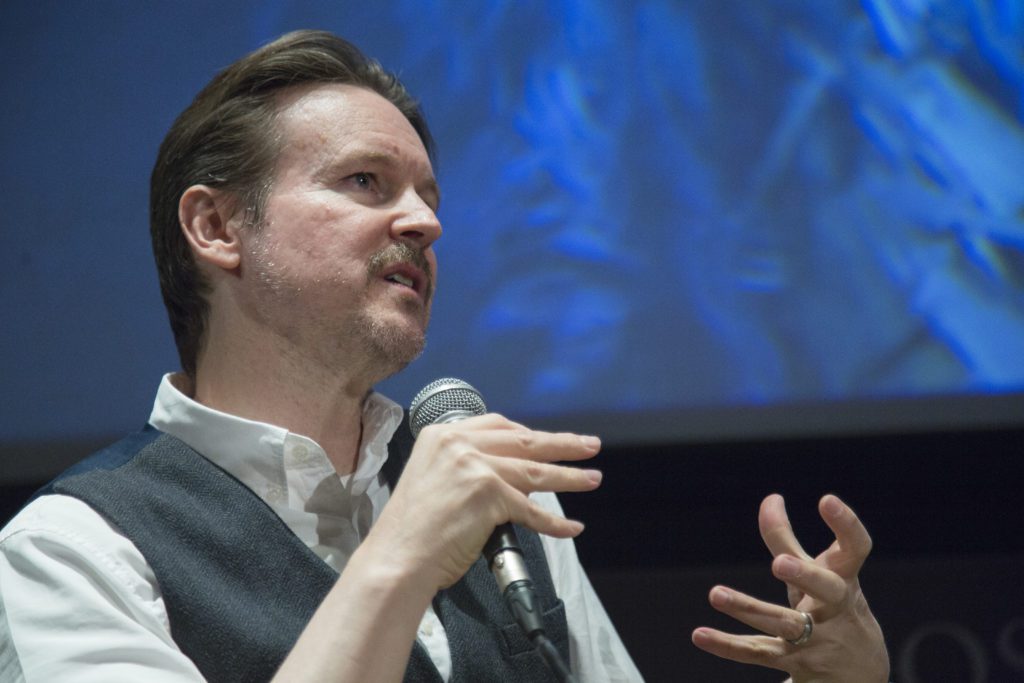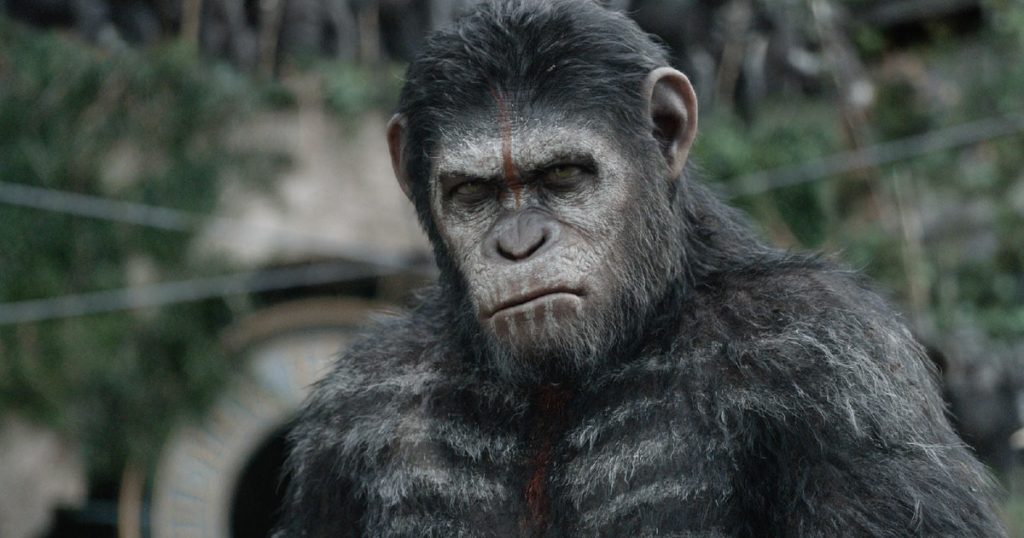War For The Planet Of The Apes Q&A With Matt Reeves
Matt Reeves, the writer/director of War For The Planet Of The Apes, speaks on campus
Matt Reeves is known for his work on films including Cloverfield, The Cabin In The Woods and Dawn of the Planet of the Apes. In his second visit on campus, the award-winning director stopped on campus to speak with our students in an interview with Jeff Goldsmith, the producer of The Q&A with Jeff Goldsmith.
Check out a few moments from the Q&A below.
JG: “What was your biggest lesson learned from Dawn of the Planet of the Apes, moving forward to War?”
MR: “I had never done motion capture before. After early screenings of Dawn, the studio asked me to do the sequel. I pitched them a story, and they gave it to me, but needed the film done in 2 years instead of 3. We spent a year to write this script. For Caesar’s story, we moved past the human narrative. I wanted to do a full ape point of view movie to immerse you into the experience.”
JG: “What was the budget for War for the Planet of the Apes?”
MR: “This film was around $180M to produce.”
“We tried to find a way to occupy a space in the films so they could exist in the same universe as the original series, but without being beholden to them. You know that it doesn’t become Planet of the Humans and the Apes, but we wanted to create a context with resonance for the human characters in the films.”
JG: “Once you knew there was going to be an apes POV movie, what inspired you to get into this style of filmmaking?”
MR: “We watched a number of westerns and war films. We watched revenge films. We wanted to take Caesar on a revenge mission in this film. These movies have been very personal for me and for Mark. To think about what it would take for us to be wounded. My son was just learning to speak when I was asked to speak. Andy Serkis learning to speak as Caesar in the first film was such a breakthrough, and there was a sensation of a breakthrough in intelligence. In these films, the animals are really the humans. The whole idea of a war story is to reach a point where we cease to have empathy for one another.”

Matt Reeves, the writer & director of War for the Planet of the Apes
JG: “You and Mark had this time together. You’re taking tropes and putting them on the wall…”
MR: “Fox allowed us to watch films on the main screen over at Fox for research while in preproduction on War. We watched Star Wars: The Empire Strikes Back, and the idea of the mythic force came to mind. We have this mythic element that woke us up, and made us realize that humanity is this mythic element that the characters are chasing after. This was the story we felt would resonate with people.”
JG: “What was your writing process?”
MR: “My co-writer, Mark, lives in New York, and we used Screen Hero to talk about process, and share the Final Draft document together.”
JG: “How did you outline it?”
MR: “On Dawn they looked at me and thought, ‘who is this guy?’ and it ended up being a real success. They were great, and as we were in post, they approached me about doing the next film.”

War for the Planet of the Apes – Courtesy of 20th Century Fox
JG: “Did you find yourself with more freedom in this sequel?
MR: “With Dawn we had less autonomy, but with this film, we were able to call the shots on locations, props and costumes.”
JG: “How long did you take to write your first draft?”
MR: “We had our first draft of War for the Planet of the Apes completed in a little less than a year.”
JG: “At a certain point, you have to collate the ideas to make a film. What was your process?”
MR: “You have to write down the things that stick with you. Then you have to go in with a hard hat and figure out what works. You name the sequences. The way I had to learn how to structure. You watch a movie, and find out, it is all about organize how a movie is told. The film takes you through tensions. The main character is sent on a trajectory that is driven by tensions. When each moment gets resolved, a new tension arises.”
JG: “Some say that films can be broken down into mini-movies.”
MR: “Exactly. You are creating a journey. It has to be connected, and the pieces that don’t work need to be thrown away.”
JG: “What do you do if you get writer’s block?”
MR: “I talk to people. You have to find some way to create a dialogue with yourself. Sometimes I’ll be grappling with ideas. I’ll print them out, and then that creates a dialogue between you and your work.”
Listen to the entire episode here for even more insight from Matt Reeves about his filmmaking style, as well as a deep dive into the major decisions that helped sculpt War for the Planet of the Apes into the successful, emotive blockbuster it has become.
